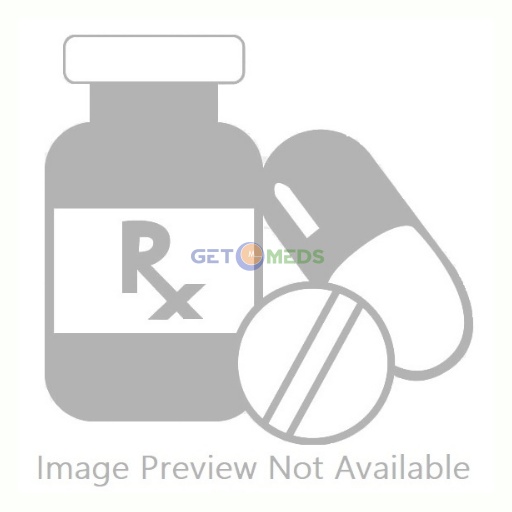All Details About Neucholine Injection
Find out detailed description, uses, directions of use, side effects, warnings and precautions, frequently asked questions about Neucholine Injection
Description:
Neucholine Injection is a medicine used in the treatment of stroke, head injury, Alzheimer's disease and memory loss (dementia) in Parkinson's disease. It protects the nerve cells in the brain from damage and also helps to repair the damaged nerve cells. Therefore, it improves learning and memory.Neucholine Injection is administered as an injection under the supervision of a healthcare professional and should not be self administered. It is given in cases where oral administration is not possible. Take this medicine in the dose and duration as advised by your doctor and if you have missed a dose, take it as soon as you remember.
Some common side effects that may be seen with this medicine include decreased blood pressure, stomach pain, diarrhea, irregular heart rate, rash, insomnia, and occurrence or intensification of numbness of paralyzed extremities. You may also notice some injection site reactions such as pain, redness or swelling. However, these are temporary and usually resolve on their own. Please consult your doctor if these do not subside or bother you.
Earlier taking this medicine, inform your doctor if you ever had any problems with your kidneys or if you have or ever had any seizures (epilepsy or fits). Your dose depends on your age and the condition you are being treated for. Forever let your doctor know about all the medicines that you are taking before you start with your treatment. Please inform your doctor if you are pregnant, planning to conceive or breastfeeding, before using this medicine.
Uses:
Directions For Use:
Your doctor or nurse will give you this medicine. Compassionately do not self administer.Side Effects:
Most side effects do not require any medical attention and disappear as your body adjusts to the medicine. Consult your doctor if they persist or if you’re worried about themOrdinary side effects of Neucholine
- Injection site reactions (pain, swelling, redness)
- Decreased blood pressure
- Arrhythmia (irregular heartbeats)
- Stomach pain
- Diarrhea
- Insomnia (difficulty in sleeping)
- Rash
- Peripheral neuropathy (tingling and numbness of feet and hand)
Warning & Precautions:
Alcohol
CONSULT YOUR DOCTOR
It is not known whether it is safe to consume alcohol with Neucholine Injection. Please consult your doctor.
Pregnancy
CONSULT YOUR DOCTOR
Information regarding the use of Neucholine Injection during pregnancy is not available. Please consult your doctor.
Breast feeding
CONSULT YOUR DOCTOR
Information regarding the use of Neucholine Injection during breastfeeding is not available. Please consult your doctor.
Driving
CONSULT YOUR DOCTOR
It is not known whether Neucholine Injection alters the ability to drive. Do not drive if you experience any symptoms that affect your ability to concentrate and react.
Kidney
CAUTION
Neucholine Injection should be used with caution in patients with kidney disease. Dose adjustment of Neucholine Injection may be needed. Please consult your doctor.
Liver
CONSULT YOUR DOCTOR
There is limited information available on the use of Neucholine Injection in patients with liver disease. Please consult your doctor.
FAQs:
Q. I have been prescribed Neucholine Injection for Alzheimer’s disease. What is its role, and how does it work?
Neucholine Injection is a form of an essential nutrient called choline which is naturally present in the body. It protects the nerve cells in the brain from damage and also helps to repair the damaged nerve cells. Therefore, it improves learning, memory, and cognitive function (processing information or perception) in Alzheimer’s disease.
Q. Can I take alcohol during treatment with Neucholine Injection?
There are no studies to determine the effect of alcohol on treatment with Neucholine Injection. However, since Neucholine Injection is prescribed for stroke, Alzheimer’s disease, Parkinson’s disease, head injury, and age-related memory impairment, it is best to avoid the consumption of alcohol.
Q. Can students take Neucholine Injection to improve memory and learning?
No, students should not take Neucholine Injection since studies show that Neucholine Injection is effective only in age-related memory problems, memory problems associated with long-standing stroke, and in Alzheimer’s disease. Moreover, there is no data available for use of this medicine in children.
Q. What is the role of Neucholine Injection in stroke?
In cases of stroke caused due to blood clots, taking Neucholine Injection orally can help the patient recover completely within 3 months. Also, giving Neucholine Injection either intravenously (injecting the medicine in vein directly) within 12 hours of having a stroke or daily for 7 days after the stroke can help the patient recover sooner.
Disclaimer:
Getomeds primary intention is to ensure that its consumers get information that is reviewed by experts, accurate, and trustworthy. The information and contents of this website are for informational purposes only. They are not intended to be a substitute for professional medical advice, diagnosis, or treatment. Please seek the advice of your doctor and discuss all of your concerns about any disease or medication. Do not disregard or postpone seeking professional medical advice because of something you read on Getomeds. Our mission is to support, not replace, the doctor-patient relationship.

